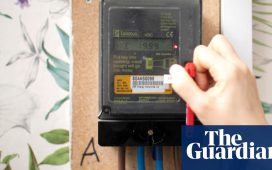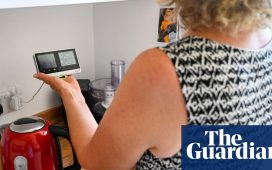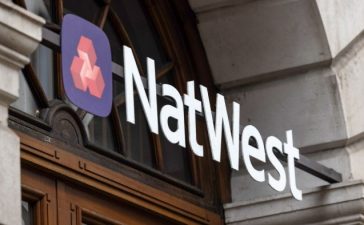More than 140 organisations and individuals, including the consumer champion Martin Lewis, have told Rishi Sunak to make good on a promise to help Britain’s least well-off households with a social tariff for their gas and electricity.
The group has written to the prime minister reiterating calls to fulfil a government pledge to help vulnerable households with a discounted rate for energy bills before the last remaining support schemes come to an end in April.
In the letter, seen by the Guardian, they demand help for households face “impossibly high energy bills”, which experts warn will continue for the rest of the decade.
The typical household bill will fall to just below £2,000 a year from this Sunday when the regulator’s energy price cap is updated, but this is still about 13% higher than last winter and more than 50% higher than pre-pandemic levels.
Lewis, founder of Money Saving Expert, said households face paying a “once unthinkable” amount on gas and electricity this winter, which will feel worse because the government will no longer offer the £400 per household towards energy bills that they did last year.
“The energy market is broken – the limited competition there is hardly impacts what people pay. Even when there was competition, it failed many elderly or vulnerable people unable to take advantage of deals. That why I’ve long supported a social tariff. It’s why I was excited when the government said it would bring one in.”
He added: “Now I’m despairing at the deafening silence of inaction. This isn’t trivial, it’s a core wellbeing issue for millions. The government needs to pull its bloody finger out.”
The government has repeatedly pledged to consult on plans for a social tariff since it was first promised in the autumn statement last year, but ministers failed to include the issue in a range of changes to the energy market proposed over the summer.
The government is understood to have cooled on the idea because of the potential cost and the difficulty of accurately targeting those most in need.
It is “completely unworkable”, according to one industry source. “Campaigners expect ministers to pay for the tariff from the Treasury coffers but the government has no intention of doing that. I doubt a Labour government would do it either. It’s a total non-starter, and wishful thinking.”
The source added: “It would be impossible to accurately determine who should receive this tariff … They’d get it wrong as often as they get it right because it’s literally impossible to stay on top of the very fluid circumstances which can impact a household’s financial pressures.”
The letter was signed by National Energy Action, a fuel poverty campaign group, Age UK, Citizens Advice, Energy Action Scotland, Fair By Design, Money Saving Expert, and Scope, a disability charity. It was supported by another 140 organisations and MPs, including Angus MacNeil, the chair of the energy security and net zero committee, and Ben Lake, the chair of the fuel poverty and energy efficiency all-party parliamentary group.
Gillian Cooper, the head of energy policy at Citizens Advice, said that without a social tariff “we’ll see the same crisis repeat every winter” with “struggling households unable to pay their energy bills, people unable to top up their prepayment meter, record numbers coming to us for crisis support”.
Adam Scorer, chief executive at National Energy Action, added that a third of households currently expect to struggle to heat their homes this winter because the cost of energy has become unaffordable.
A spokesperson for the energy department said: “We recognise the cost-of-living challenges families are facing and spent £40bn paying around half a typical household’s energy bill last winter.
“While energy prices are falling … we are also providing additional targeted support for the most vulnerable, with 3 million households expected to benefit from the £150 warm home discount and millions of vulnerable households will receive up to £900 in further cost of living payments. We continue to keep all options under review for those most in need.”











